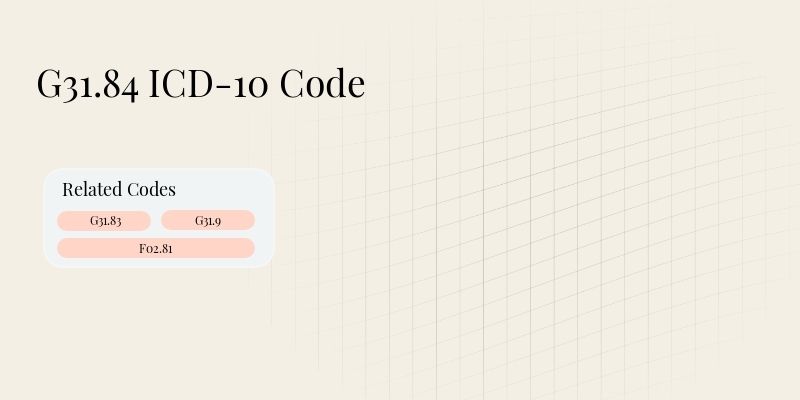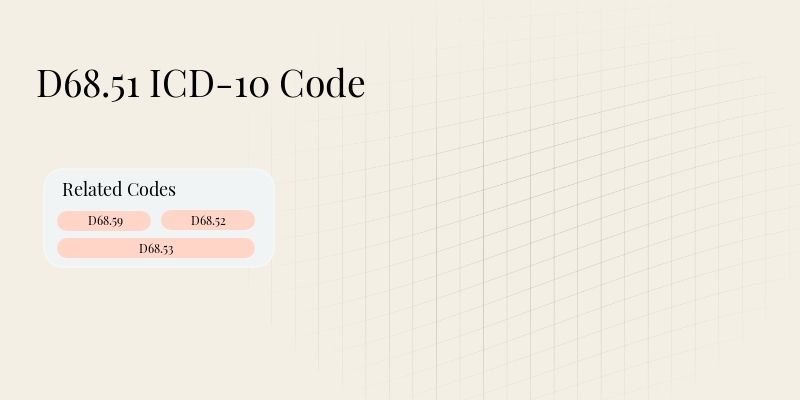
CO-129 Denial Code: Incorrect Prior Processing Information

Key Takeaways
- What CO-129 Denial Code Covers: This denial code indicates "Incorrect Prior Processing Information," highlighting issues related to prior authorization or incorrect claim details that affect reimbursement.
- Common Scenarios That Trigger It: Situations such as missing prior authorization, incorrect patient information, and outdated insurance details typically lead to the CO-129 denial.
- Who Should Address the Denial: Billing specialists, claims processors, and healthcare providers should collaborate to resolve this denial effectively.
- Best Practice for Proper Use: Ensure all claims are submitted with accurate prior authorization details and verify insurance eligibility before service delivery.
- Example of Actual Usage: A claim for a surgical procedure is denied due to lack of prior authorization. The billing department verifies the requirement, obtains prior authorization, and resubmits the claim for payment.
What is CO-129 Denial Code
The CO‑129 denial code signifies "Incorrect Prior Processing Information," indicating that the claim has been denied due to an issue with prior authorizations or the processing of relevant information. This code typically arises when the payer identifies discrepancies in the details provided, affecting the reimbursement process. Understanding this denial is crucial as it directly impacts a provider's revenue cycle and necessitates timely corrections to facilitate payment.
Payers may trigger the CO‑129 code for various reasons, including missing or incorrect prior authorization numbers, outdated patient insurance information, or discrepancies in the claim's details. Resolving these issues swiftly is essential, as ongoing denials can lead to significant financial losses for healthcare providers.
Common Reasons for Denial
Denial codes often reflect recurring process issues that can be addressed to minimize future occurrences. Below is a table outlining common root causes related to the CO‑129 denial code.
Root Cause | Description | How It Triggers CO-129 Denial Code | Suggested Fix |
|---|---|---|---|
Missing Prior Authorization | The required prior authorization was not obtained before the service. | Claims submitted without prior authorization are often denied. | Implement a checklist to ensure prior authorization is obtained. |
Incorrect Patient Information | Details such as name, date of birth, or insurance ID are incorrect. | Incorrect information can lead to processing errors by the payer. | Verify patient information at the time of service. |
Outdated Insurance Details | Claims submitted with expired or incorrect insurance information. | This can result in claims being denied due to eligibility issues. | Regularly update insurance information in the system. |
Who Can Resolve CO-129 Denial Code?
Many professionals are involved in addressing the CO‑129 denial code. Each plays a vital role in ensuring claims are processed correctly.
- Billing Specialists: They are often the first point of contact for identifying and correcting denials.
- Claims Processors: Responsible for submitting claims accurately and following up on denials.
- Healthcare Providers: They must ensure that all necessary documentation and prior authorizations are in place before services are rendered.
How to Resolve CO-129 Denial Code
Addressing the CO‑129 denial code requires a systematic approach to ensure claims are processed correctly. Below are steps to resolve the denial.
- Verify the Denial Reason: Call the payer and confirm the cause. E.g., Verified missing prior authorization with Cigna.
- Correct and Refile the Claim: Fix the error and submit again. E.g., Added required modifier and sent via clearinghouse.
- Submit an Appeal with Documentation: If denial persists, prepare an appeal with supporting documents. E.g., Attached treatment notes and letter of medical necessity.
- Update Internal Processes: Implement changes to prevent future denials. E.g., Set EHR reminder for pre-auth for all sleep studies.
Financial Impact of CO-129 Denial Code
The financial implications of the CO‑129 denial code can be significant for healthcare providers. Below is a table illustrating the potential impact.
Potential Lost Revenue | Average Time to Resolve | Staff Hours Involved | Frequency by Payer Type |
|---|---|---|---|
$200 - $1,500 per denied claim | 2 to 4 weeks | 3 to 5 hours | Varies by payer |
Disclaimer: The rates vary by payer, location, and claim complexity. We keep this article updated with industry averages.
Benefits of Proper Denial Management
Utilizing effective denial management can lead to improved financial health for healthcare organizations. Below is a table outlining the benefits.
Benefit | Why It Matters | How It's Achieved |
|---|---|---|
Improved Cash Flow | Timely claim processing leads to faster payments, enhancing cash flow. | Streamlining billing processes and ensuring accurate submissions. |
Reduced Denial Rates | Lower denial rates mean fewer resources spent on appeals. | Regular training for staff on coding and billing practices. |
Enhanced Patient Satisfaction | Fewer billing issues contribute to a better patient experience. | Clear communication regarding insurance and billing practices. |
Common Mistakes to Avoid with CO-129 Denial Code
Mismanagement of the CO‑129 denial code can result in claim rejections, delayed payments, and audits. It's essential to be aware of common mistakes that can exacerbate these issues.
- Ignoring Denial Codes: Failing to address denial codes can lead to recurring issues. For example, a billing department may overlook the CO-129, causing repeated denials for multiple claims.
- Inaccurate Documentation: Submitting claims without proper supporting documents can result in denials. A provider may forget to attach necessary prior authorization, leading to CO-129 denials.
- Poor Communication: Lack of communication between billing teams and providers can create misunderstandings. For instance, a physician may not inform the billing team of a prior authorization requirement, resulting in claim denials.
- Delayed Follow-Up: Waiting too long to address a denial can lead to lost revenue. A billing specialist might wait weeks before contacting the payer, resulting in missed deadlines for resubmission.
CO-129 Denial Code vs Other Denial Codes
Understanding how the CO‑129 denial code compares to other similar codes can aid in effective denial management. Below is a table comparing this code with others.
Denial Code | Meaning | Common Cause | Who Resolves It | Resolution Strategy |
|---|---|---|---|---|
CO-129 | Incorrect Prior Processing Information | Missing prior authorization | Billing specialists | Verify and resubmit |
CO-16 | Claim Lacks Information | Missing or incorrect data | Claims processors | Correct and refile |
CO-27 | Expenses Incurred After Coverage Expired | Outdated insurance | Healthcare providers | Verify coverage before service |
Conclusion
The CO‑129 denial code indicates "Incorrect Prior Processing Information," primarily triggered by issues related to prior authorizations and incorrect claim details. Common causes include missing prior authorization, incorrect patient information, and outdated insurance details. Addressing this denial involves billing specialists, claims processors, and healthcare providers collaborating to resolve discrepancies swiftly. To avoid future occurrences, it's vital to implement best practices, such as verifying prior authorizations and ensuring accurate patient details. By effectively managing this denial, healthcare organizations can improve their cash flow, reduce denial rates, and enhance patient satisfaction.
Disclaimer: This article is for informational purposes only and does not constitute legal or medical advice. Always consult professional guidelines and regulatory bodies for specific compliance requirements.
Frequently Asked Questions
Reduce burnout,
improve patient care.
Join thousands of clinicians already using AI to become more efficient.

CO-183 Denial Code: Provider Ineligible to Refer Service
Discover essential insights on the CO-183 Denial Code code for health professionals. Enhance your practice and navigate billing with confidence.

G31.84 ICD-10 Code: Cognitive Impairment
Discover essential insights on the G31.84 ICD-10 Code code for health professionals. Enhance your practice and navigate billing with confidence.

D68.51 ICD-10 Code: Factor v Leiden
Discover essential insights on the D68.51 ICD-10 Code code for health professionals. Enhance your practice and navigate billing with confidence.
